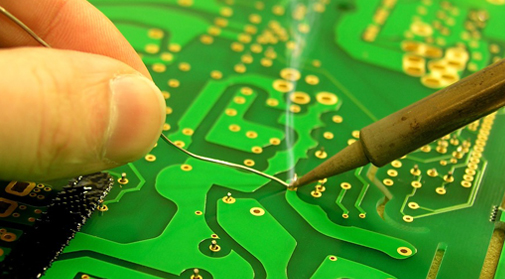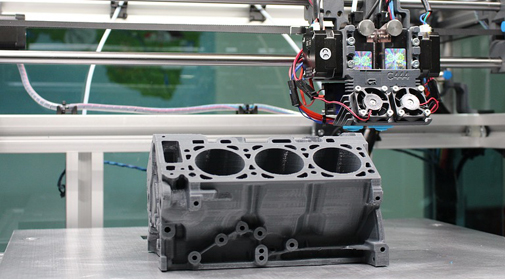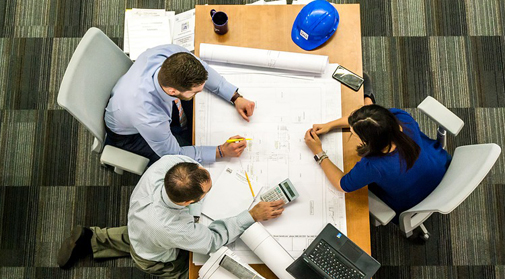Computational Methods and Intelligent Technology in Architecture and Design (CM-iTAD) Lab
CM-iTAD lab focuses on addressing the need for a creative workflow using digital fabrication, simulation software, artificial intelligence, and the ability to design custom software development tools to solve unique architectural design problems. Multidisciplinary approaches will enable the architecture discipline to discover innovative computational methods for use in creative and design work. Lab activities include parametric and generative form-finding, preparing digital information for rigorous analysis, and integrating the logic of digital fabrication into design processes. The lab will integrate architecture, computer science, and engineering, contributing to an interdisciplinary design approach.
An influential component of the lab's philosophy is the concept of rigorous creativity. Consequently, algorithmic thinking, systematic parametric design, analytical methods, creative intuition, tectonic sensibilities, and machine learning have been integrated to achieve more innovative results than traditional methods can provide.
The CM-iTAD lab's focus on advancing creative workflows in architecture through digital fabrication, simulation software, artificial intelligence, and custom software development is likely to have a significant impact on the Saudi Research, Development, and Innovation (RDI) ecosystem:
- Advancement of Architectural Practices: The lab's research and innovative approaches will likely lead to the advancement of architectural practices in Saudi Arabia. By integrating technology and interdisciplinary methods, the lab can contribute to the development of more efficient, sustainable, and aesthetically pleasing architectural designs.
- Promotion of Interdisciplinary Collaboration: The lab's integration of architecture, computer science, and engineering fosters interdisciplinary collaboration. This approach can inspire a culture of cross-disciplinary knowledge sharing, potentially leading to innovative solutions that benefit various sectors of the RDI ecosystem.
- Technology Transfer: The technologies and methodologies developed by the lab, such as digital fabrication techniques, AI applications, and custom software tools, can have broader applications beyond architecture. They may find use in industries like construction, manufacturing, and urban planning, leading to technological advancements in these sectors.
- Educational Impact: The lab's activities can influence education and workforce development by providing students and professionals with exposure to cutting-edge technologies and interdisciplinary problem-solving. This can help prepare a skilled workforce capable of driving innovation in the RDI ecosystem.
- Economic Growth: By fostering innovation, attracting investment, and contributing to the development of new technologies and solutions, the lab can stimulate economic growth in Saudi Arabia. This growth may lead to job creation and opportunities for entrepreneurship within the RDI ecosystem.
- Cultural and Environmental Preservation: The lab's emphasis on creative and sustainable architectural solutions can also have a positive impact on cultural and environmental preservation efforts in Saudi Arabia. Innovative design and construction methods can help protect and showcase the country's cultural heritage while promoting sustainable practices.
- International Collaboration: As the lab engages in cutting-edge research and development, it may attract international collaborations and partnerships, further enhancing Saudi Arabia's position in the global RDI landscape.
CM-iTAD Lab objective
The CM-iTAD research lab aims to investigate the ability of computational design methods in architecture and design. To active this aim, the following research objective adopted:
- To create innovative design approaches using computational design methods to solve architecture and design issues.
- To create software that enables and assists architects in their design process.
- To address a critical barrier to developing new Machines learning Technology in Architecture and design.
- To explore additive manufacturing, subtractive manufacturing, and robotic manipulation using modern digital modelling software
- To explore additive manufacturing, subtractive manufacturing, and robotic manipulation using modern digital modelling software.
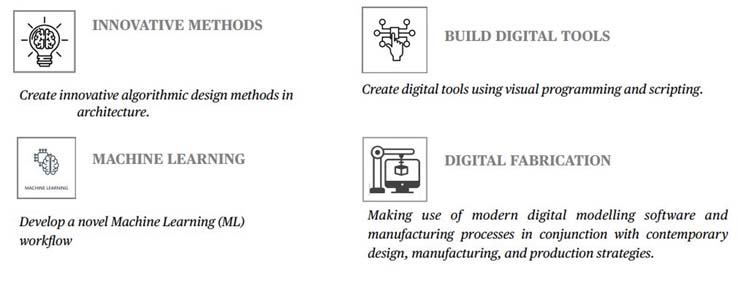
CM-iTAD Team
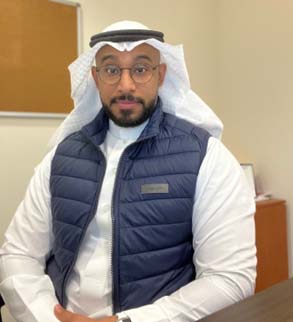 Lab Director: Dr. Abdulrahman Ahmed Alymani, Assistant Professor in Architecture Engineering at Alfaisal University
Lab Director: Dr. Abdulrahman Ahmed Alymani, Assistant Professor in Architecture Engineering at Alfaisal University
Dr Abdulrahman Alymani is an accomplished professional in the field of architectural engineering and an Assistant Professor at Alfaisal University, as well as a founder and coordinator of Computational Methods and Intelligent Technology in Architecture and Design (CM-iTAD) Research Lab. He holds a PhD degree from Cardiff University, UK, where his research focused on the intricate interactions between building envelopes and the surrounding environment, employing innovative ML techniques to gain deeper insights into this complex relationship. Before joining Alfaisal University, Dr Alymani contributed to the academic community at Cardiff University as an Assistant Teacher, showcasing his dedication to education and research. With a strong academic foundation, he has also earned a master’s degree (MArch) from the Southern California Institute of Architecture (Sci-Arc), USA, further enriching his expertise in architectural design and theory.
Dr Alymani's professional interests span a wide spectrum within the realm of computational methods in architecture. He has a particular passion for the applications of artificial intelligence (AI) and ML in architecture, which underscores his commitment to harnessing cutting-edge technology to advance the field. His expertise extends to areas such as parametric design, digital design, and generative design, reflecting his innovative approach to architectural practice. Dr Alymani's dedication to exploring the interdisciplinary aspects of architecture and its relationship with the surrounding context sets him apart. He actively engages in collaborative endeavours with academics from diverse disciplines, including computer science, landscape architecture, and urban planning, to foster holistic and innovative solutions to architectural challenges. Dr Alymani is not only a visionary in his field but also a dedicated educator, researcher, and collaborator, continuously pushing the boundaries of architectural knowledge and practice. His contributions to the world of architecture are marked by a relentless pursuit of innovation and a commitment to interdisciplinary exploration.
CM-iTAD Member
Arch. Fatma Al Mulla, Instructor of Architecture Engineering, College of Engineering, Alfaisal University
Eng. Mohamed Akilah, Instructor of Architecture Engineering, College of Engineering, Alfaisal University
Ahmad Malek Faham, Research Assistant
CM-iTAD Collaborators
- Professor Wassim Jabi at Welsh School of Architecture, Cardiff University.
- Topologic BIM: Software – Topologic
- Zoom 3DP digital lab: ZOOM 3DP – Innovative Designs
- IPROconsult

Contact CM-iTAD
CM-iTAD@alfaisal.edu abalymani@alfaisal.edu (Director of the lab)



